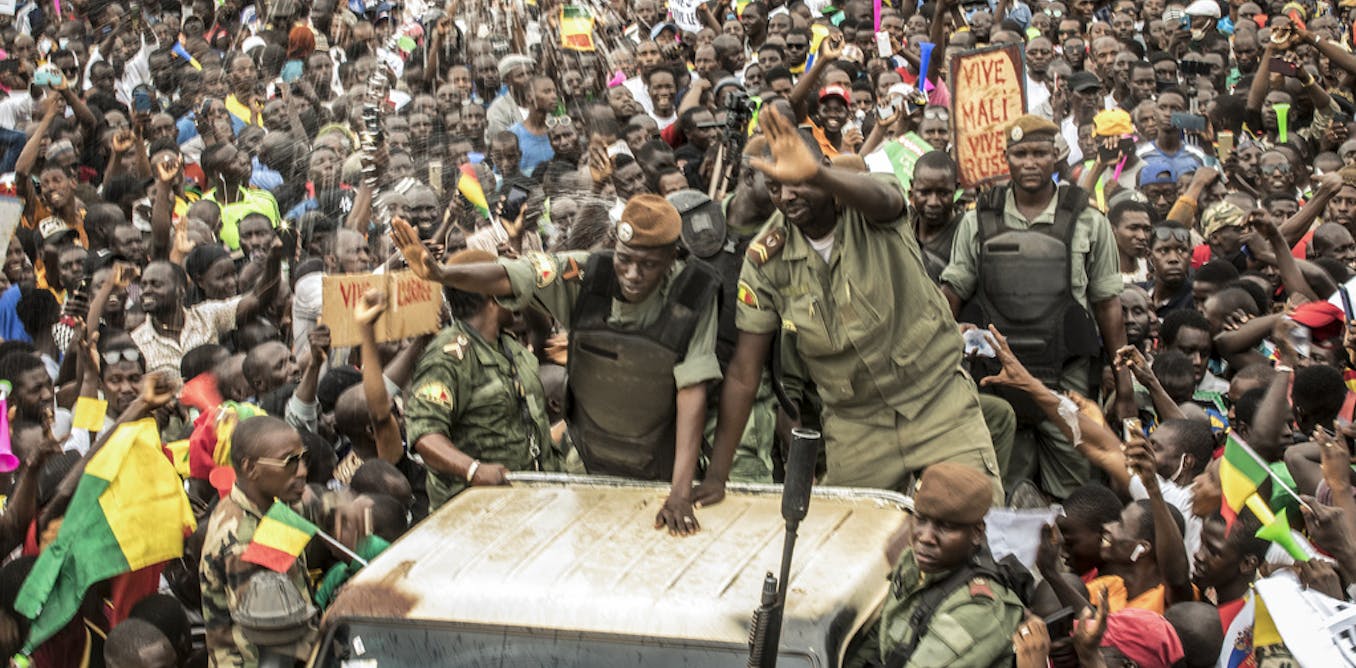
Civilian support for military coups isn’t a bug – it’s a feature
Salah Ben Hammou has received funding from the United States Institute of Peace and Minerva Research Initiative. He is a Postdoctoral Research Associate at Rice University's Baker Institute of Public Policy.
In September 2024, authorities in Benin detained the country’s former sports minister and a prominent businessman for allegedly plotting a coup against the West African nation’s president, Patrice Talon. Had a putsch materialized, Benin would have joined a growing list of African countries to have experienced a military coup over the past four years.
Dubbed an “epidemic of coup d'états” by United Nations Secretary-General Antonio Guterres, the resurgence of military takeovers has left many observers perplexed. For one, the frequency of coups worldwide had reached historic lows prior to 2020.
But perhaps even more puzzling is that several of the recent military coups – such as those in Mali, Burkina Faso and Guinea – have been accompanied by significant civilian support. Indeed, while various commentaries or news reports have treated civilian support as an exceptional feature of this recent coup wave, these perspectives rely on a common misunderstanding.




















